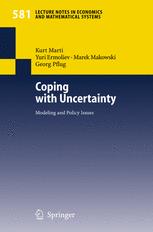

Most ebook files are in PDF format, so you can easily read them using various software such as Foxit Reader or directly on the Google Chrome browser.
Some ebook files are released by publishers in other formats such as .awz, .mobi, .epub, .fb2, etc. You may need to install specific software to read these formats on mobile/PC, such as Calibre.
Please read the tutorial at this link: https://ebookbell.com/faq
We offer FREE conversion to the popular formats you request; however, this may take some time. Therefore, right after payment, please email us, and we will try to provide the service as quickly as possible.
For some exceptional file formats or broken links (if any), please refrain from opening any disputes. Instead, email us first, and we will try to assist within a maximum of 6 hours.
EbookBell Team

5.0
50 reviewsOngoing global changes bring fundamentally new scientific problems requiring new concepts and tools. A key issue concerns a vast variety of practically irreducible uncertainties, which challenge our traditional models and require new concepts and analytical tools. The uncertainty critically dominantes, e.g., the climate change debates. In short, the dilemma is concerned with enormous costs vs. massive uncertainties of potential extreme impacts. Traditional scientific approaches usually rely on real observations and experiments. Yet no sufficient observations exist for new problems, and "pure" experiments and learning by doing may be very expensive, dangerous, or simply impossible. In addition, available historical observations are contaminated by actions, policies. The complexity of new problems does not allow to achieve enough certainty by increasing the resolution of models or by bringing in more links. Hence, new tools for modeling and management of uncertainty are needed, as given in this book.